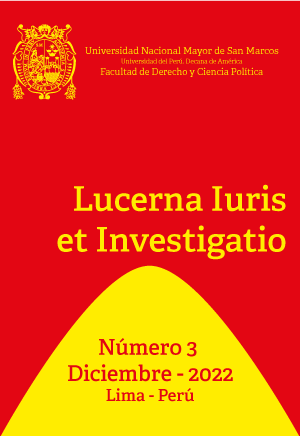The problem of presuming moral damage from the evidentiary reasoning to determine its compensation
DOI:
https://doi.org/10.15381/lucerna.n3.23949Keywords:
Non-pecuniary damage, Proof, Probative reasoning, PresumptionAbstract
This article aims to provide a solution to the problem of moral damage, by presuming the damage that this category poses, without the presentation of an expert opinion as a means of proof, specifically, via a psychological report. To do this, we intend to analyze and prove the damages that sustaining the in re ipsa theory of this non-pecuniary damage entails. The objective of this investigation is to demonstrate the damages caused by the lack of uniformity in the national judiciary regarding the criteria to determine the amount of non-pecuniary damage. This is a descriptive study in which the qualitative method was used. The population is constituted by the analysis of decisions of the Supreme Court of the Republic of Peru, specifically cassations of the Supreme Court.
Downloads
Published
Issue
Section
License
Copyright (c) 2022 Bruno Alonso Samuel Tapia Cornejo

This work is licensed under a Creative Commons Attribution 4.0 International License.
THE AUTHORS RETAIN THEIR RIGHTS:
- The authors retain their rights to the work, trademark and patent, and also to any process or procedure described in the article.
- The authors retain the right to share, copy, distribute, execute and publicly communicate the article published in Lucerna Iuris et Investigatio (for example, place it in an institutional repository or publish it in a book), with an acknowledgment of its initial publication in Lucerna Iuris et Investigatio .
- The authors retain the right to make a subsequent publication of their work, to use the article or any part of it (for example: a compilation of their work, conference notes, thesis, or part of a book), provided that indicate the source of publication (authors of the work, journal, volume, number and date).






